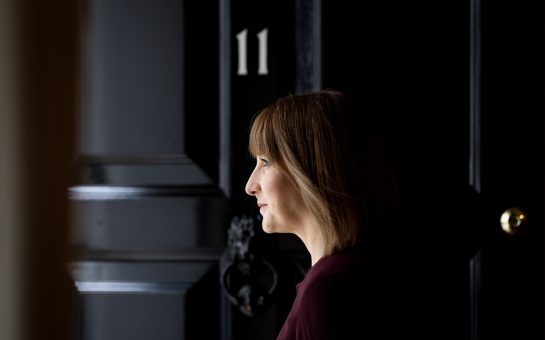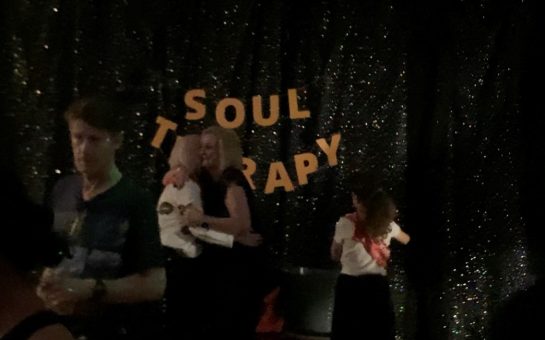Books exploring magic, bereavement and landscape are among the fiction and nonfiction shortlisted for a £10,000 writing prize dubbed the ‘Booker of the North’.
The Portico Prize for Literature, a biennial award for the highest quality books set wholly or mainly in the North of England, celebrates its 30th birthday this year.
Professor of Modern Literature at Manchester Metropolitan University Andrew Biswell, who helped judge the fiction and poetry category, said that the Portico is ‘sometimes spoken of as the Booker of the North’.
The Man Booker Prize, one of the biggest literary prizes in the world, was awarded to the best novel by a writer from Britain, the Commonwealth, Ireland or Zimbabwe until 2013.
It is now open to any novel in English, including those by American writers.
Professor Biswell, who himself won the prize in 2006 for his book The Real Life of Anthony Burgess, said: “You might say the Booker Prize has lost its sense of place or what it represents has changed.
“The Portico stands for the idea that the North is distinctive. It’s an important place in itself.”
@gosspoems is shortlisted for The Portico Prize. Book your place at the 2015 awards dinner: https://t.co/TfflHAPCkF pic.twitter.com/30DfVPUOl8
— The Portico Library (@ThePortico) October 28, 2015
Unusually four poetry books were nominated for the prize, including Her Birth – Rebecca Goss’ collection of poems about the short life and death of her daughter Ella.
The other poetry nominees are Toby Martinez de las Rivas’ Terror, Katrina Porteous’ Two Counties and Michael Symmonds’ Roberts Drysalter.
Alan Garner’s Boneland, also nominated, is a sequel for adults to his famous children’s fantasy novels from 1960 and 1963, The Weirdstone of Brisingham and The Moon of Gomrath.
The final nominee in the fiction and poetry category is Beastings by Benjamin Myers, from independent publishers Bluemoose.
It tells the story of the Girl, a mute orphanage inmate on the run across the Cumbrian wilds with a stolen baby, pursued by a priest.
Beastings up for Portico prize: https://t.co/Yr0rmi1TkR Fingers crossed.
— Mike Harrison (@mjohnharrison) October 4, 2015
Former Alberto Y Lost Trios Paranoias musician, writer, broadcaster, director and ventriloquist CP Lee was also a non-fiction judge.
He agreed that the northern connection was important.
He told MM: “I do still believe that this country is London-centric and I value the empowerment of all the regions in this country as a whole and I believe we should celebrate northernness.”
Mr Lee paid tribute to all the books on the shortlist, which he chose with University of Manchester Professor of History Michael Wood and food writer Neil Sowerby.
He said: “It was fascinating how many of the entrants here were to do with the countryside.
“Being a Mancunian, I tend to think of the North as being post-industrial cities, so it was fascinating to read a wider perspective.”
Of James Rebanks’ The Shepherd’s Life, a memoir of his life as a sheep farmer in the Lake District, Mr Lee said: “I never thought I would be able to say I read a book about keeping sheep and couldn’t put it down, but it was a real eye-opener.”
Another memoir on the shortlist is Cathy Rentzenbrink’s The Last Act of Love, about her family’s experiences while her brother was in a coma for a decade.
Mr Lee said: “We found it very emotionally charged, offering insights and glimpses into a process hopefully none of us will have to go through of deciding when to turn off a life support system.”
The other non-fiction books shortlisted include Jenny Uglow’s The Pinecone, a biography of architect and heiress Sarah Losh, and Richard Benson’s The Valley, a memoir of a hundred years in his Yorkshire mining family.
Rob Cowen’s Common Ground, a work of psychogeography about uncelebrated landscapes, rounds out the shortlist.
Mr Sowerby said: “It’s a fantastic shortlist. It’ll be a very hard job to choose one on the day – like choosing a Pope but without the smoke.”
Only four of the eleven nominated writers were women and all were white.
Author Nicola Griffith wrote in May that ‘Women seem to have literary cooties’ after analysing the winners of six major fiction prizes.
She found that books by male authors or with male protagonists were more likely to win than books by or about women.
Of all the Booker prize winners between 2000 and 2014, nine were by men about men.
Three of the six female winners also won for books with a male protagonist.
Poet Portrait: Katrina Porteous, whose ‘Two Countries’ @BloodaxeBooks has been shortlisted for the Portico Prize pic.twitter.com/LGsqlujz2J
— Derek Adams (@DerekAdamsPhoto) October 27, 2015
Mr Sowerby said there was nothing judges could do about the lack of diversity.
He said: “It’s up to the publishers to submit copies. We’re left with people who’ve seen the ad and what they send us.”
Novelist Joe Stretch, who was also a fiction judge, said that the panel suggested having three books by women and three by men, but ultimately judged on merit alone.
He said: “I’m pretty sure I’m not a racist.
“I’m pretty sure I’m not sexist.
“I make my decisions on the basis of what I like to read and trust my judgement as much as anyone can trust their judgement that you’re not being an idiot.”
Two of the Portico Prize shortlisted writers discuss their work at the final event of #MLF15 @McrLitFest pic.twitter.com/Uje3XCC3gj
— Jon Atkin (@JonAtkin) October 25, 2015
The last three Portico prizes have been awarded to women in both the fiction and non-fiction categories.
The prize was last awarded in 2012, to Sarah Hall’s The Beautiful Indifference for fiction and Jean Sprackland’s Strands for non-fiction.
Mr Stretch added that he was happy that despite all being from Manchester, the judges had produced a shortlist that was ‘hugely representative’ of the whole of the north.
He said: “To have a prize in Manchester that represents the entire north is required to have that moment to reflect on and be proud of the books that come from these cities and landscapes that we love and to reward the writers is a great thing.”
The Portico Prize was founded in 1985 by the Portico Library on Mosley Street and is supported by the Arts Council England and The Zochonis Charitable Trust.
Winners will be announced at a gala awards dinner at the Mercure Manchester Piccadilly Hotel, hosted by crime novelist Val McDermid, on November 26.



